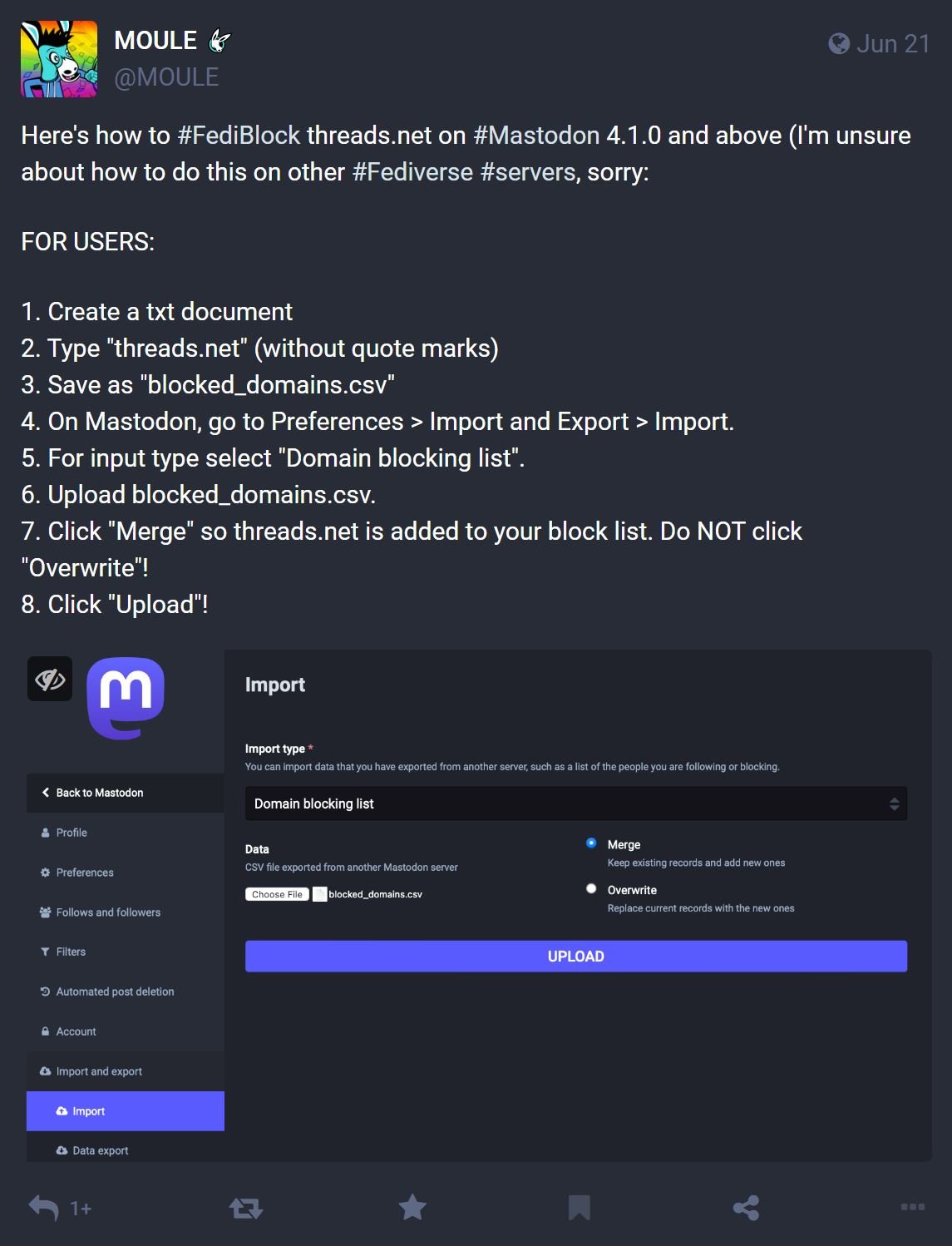this post was submitted on 05 Jul 2023
1835 points (96.8% liked)
Technology
59080 readers
4502 users here now
This is a most excellent place for technology news and articles.
Our Rules
- Follow the lemmy.world rules.
- Only tech related content.
- Be excellent to each another!
- Mod approved content bots can post up to 10 articles per day.
- Threads asking for personal tech support may be deleted.
- Politics threads may be removed.
- No memes allowed as posts, OK to post as comments.
- Only approved bots from the list below, to ask if your bot can be added please contact us.
- Check for duplicates before posting, duplicates may be removed
Approved Bots
founded 1 year ago
MODERATORS
you are viewing a single comment's thread
view the rest of the comments
view the rest of the comments

meta is not here to promote open networks. They will do more harm than good. If you want to learn more about how google achieved it with the XMPP you can read the story here https://ploum.net/2023-06-23-how-to-kill-decentralised-networks.html written by one of the core developers.
This is an interesting article, but I don't think it's fair to blame Google for the death of XMPP. Google were the largest consumers of XMPP at one point, sure, but Google was in no way (and never has been) the market leader in communications applications. Google talk came and went, Hangouts came and went and so on. The argument of "When google pulled the plug, XMPP users had to use something else to keep in touch with friends" is equally true of Google messenger users as well. I don't know anyone that ever exclusively used a Google messenger app, now or then.
Google isn't entirely innocent here, they definitely didn't treat the protocol with the respect it deserved, but the development of XMPP was/is fraught with its own problems. I remember setting up an XMPP network for use in a small office as an internal chat tool, it was a nightmare of an experience. Different XMPP Clients had different levels of compatibility with different XMPP servers, many of the clients were just poor overall and the user-experience left a lot to be desired. All we wanted was a simple instant messenger for work, in the days before Slack and Teams. We ended up using OpenFire because it was developed in tandem with Spark, it was basic but worked well for our needs but any time I tried to adopt a different messenger, half the features didn't work.